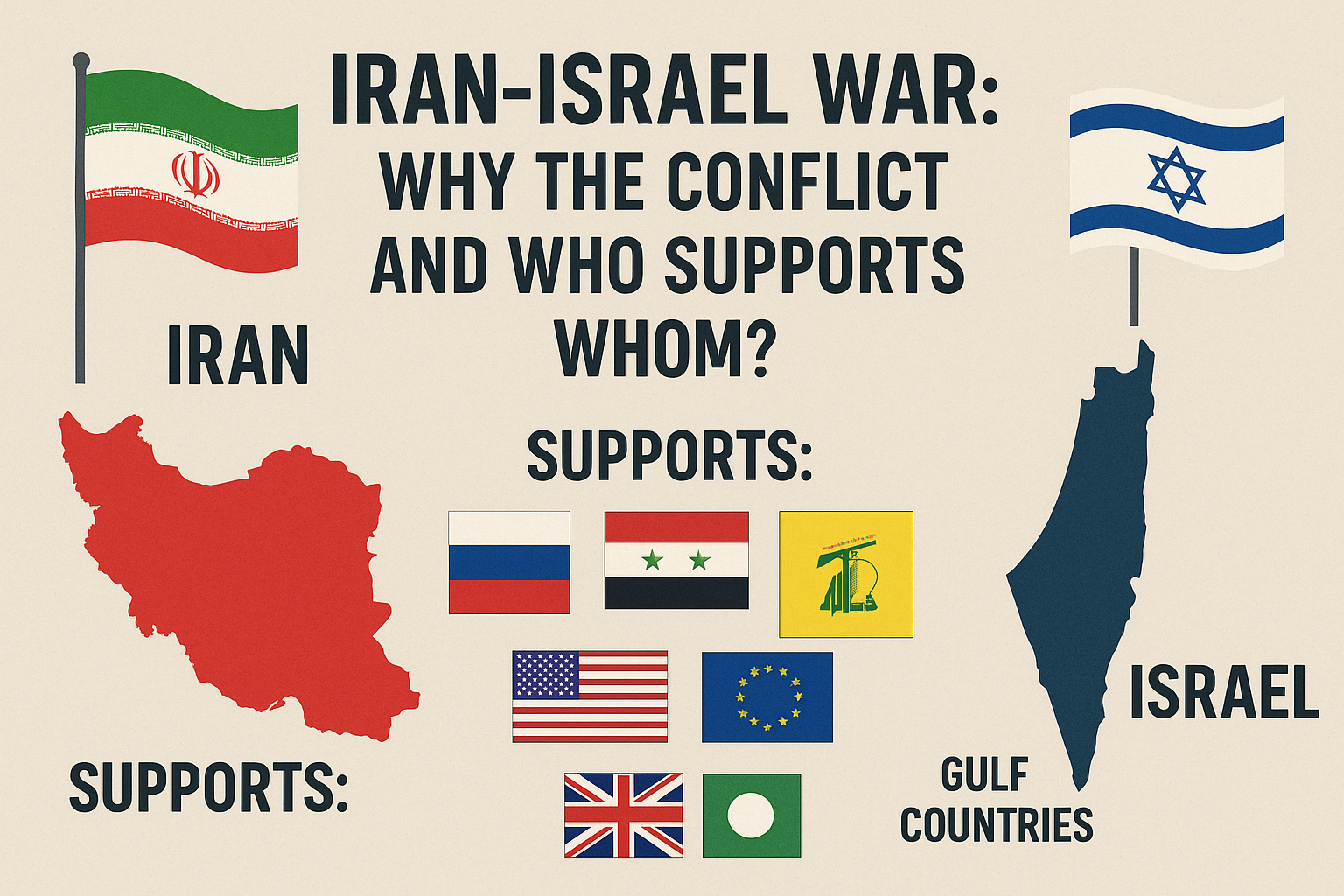
The tension between Iran and Israel has been one of the most complex and dangerous conflicts in the Middle East. Although not always a direct war, both nations have been involved in a long-running proxy war through military operations, cyberattacks, and political rivalry. In recent years, the situation has become more intense, with fears of a larger regional war. But why are Iran and Israel at odds? Who is supporting whom in this conflict?
In this blog, we will break down the reasons behind the Iran-Israel war, its history, and the global powers involved.
Why Iran and Israel Are at War?
- Religious and Ideological Differences:
- Iran is an Islamic Republic dominated by Shi’a Muslims, while Israel is a Jewish state.
- Iran’s leaders openly oppose the existence of Israel, calling for its destruction, which escalates hostility.
- Palestinian Cause:
- Iran supports Palestinian groups like Hamas and Islamic Jihad, who are enemies of Israel.
- Israel views Iran’s support as a direct threat to its security.
- Regional Dominance:
- Both countries want to expand their influence in the Middle East.
- Iran’s support for Hezbollah in Lebanon and Syrian President Bashar al-Assad challenges Israeli interests.
- Nuclear Tensions:
- Iran’s nuclear program has alarmed Israel.
- Israel fears that Iran might develop nuclear weapons in the future, which could pose an existential threat.
History of Iran-Israel Conflict
- Before 1979: Iran and Israel had friendly relations during the reign of Shah Mohammad Reza Pahlavi.
- After 1979 Islamic Revolution: Iran’s new Islamic regime declared Israel an enemy.
- Lebanon War (1982): Iran’s creation and support of Hezbollah in Lebanon became a turning point.
- Syrian Civil War (2011-present): Iran sent troops and resources to help Syria’s Assad, while Israel regularly bombed Iranian targets in Syria.
- Recent Years:
- Cyber warfare (like Stuxnet virus),
- Assassinations of Iranian nuclear scientists,
- Attacks on oil tankers in the Persian Gulf.
Who Supports Iran?
- Russia: Provides military and diplomatic support, especially in Syria.
- China: Supports Iran economically and politically in global forums like the UN.
- Syria: Receives direct military support from Iran.
- Hezbollah (Lebanon): Iran’s strongest non-state ally.
- Hamas (Gaza Strip): Receives weapons and funding from Iran.
Who Supports Israel?
- United States (USA): Israel’s biggest ally; provides billions in military aid.
- European Union (Mixed): While divided on Israel’s actions, many European countries support Israel’s right to defend itself.
- Gulf Countries (Covertly): Nations like Saudi Arabia and UAE secretly favor Israel due to their anti-Iran stance.
- United Kingdom: Politically and militarily supports Israel in various ways.
Global Impact of Iran-Israel War
- Oil Prices Surge: Conflicts in the Gulf region impact global oil supply.
- Risk of World War: If the war expands, it could drag in global powers like the US, Russia, and NATO.
- Terror Threats: Increase in terror activities and instability in the Middle East.
- Impact on India: As a major oil importer from Iran and a close ally of Israel, India could be caught in diplomatic tension.
The Iran-Israel conflict is not just a regional issue but a global concern with far-reaching consequences. While Iran seeks to expand its influence through militant groups and regional alliances, Israel remains determined to prevent Iran from becoming a nuclear-armed power. The involvement of superpowers like the USA, Russia, and China makes this conflict even more dangerous
For now, diplomacy, international pressure, and back-channel negotiations remain the only hope to prevent a full-scale war between Iran and Israel.
read more like this on our webpage kannadavarte22 .
